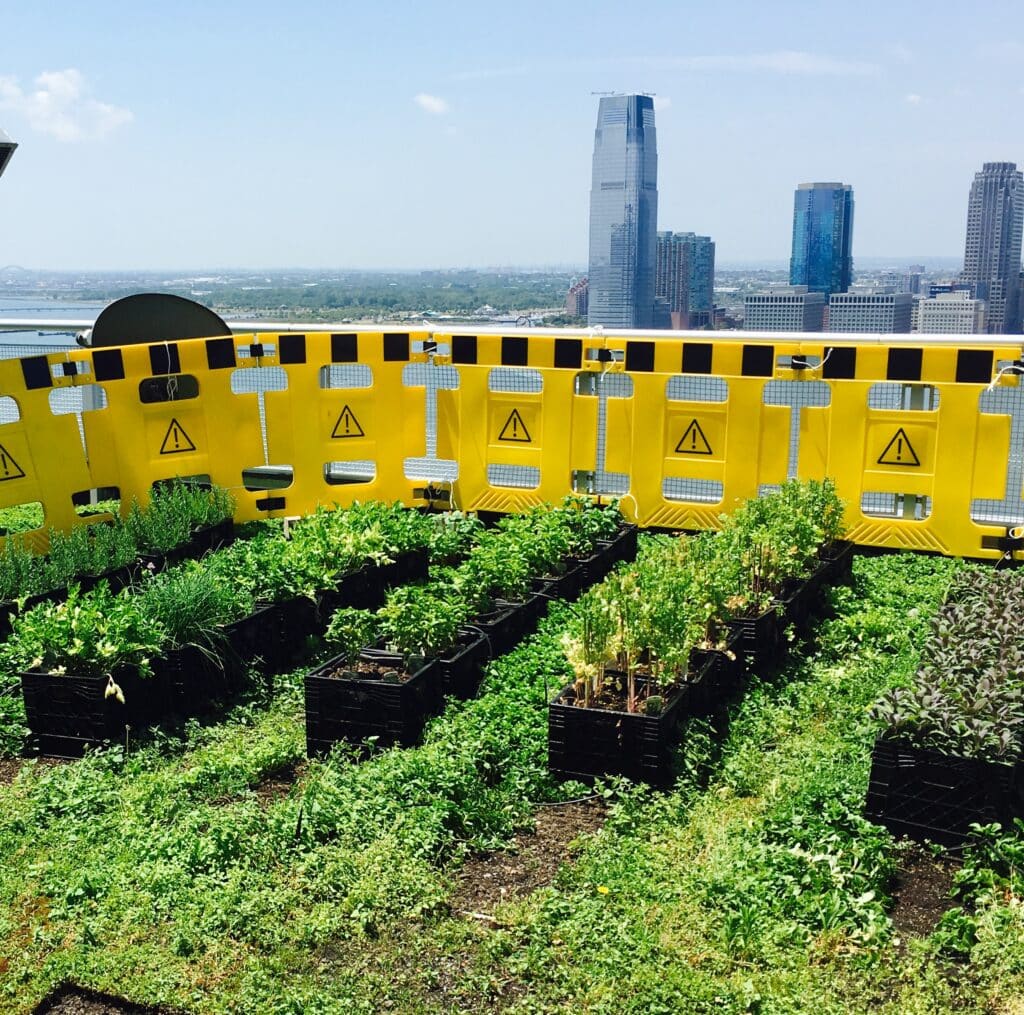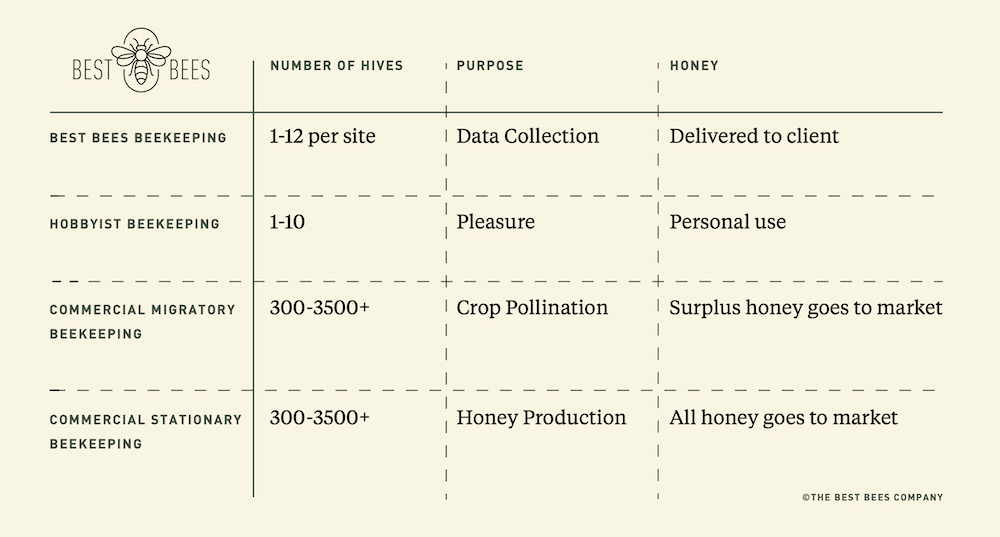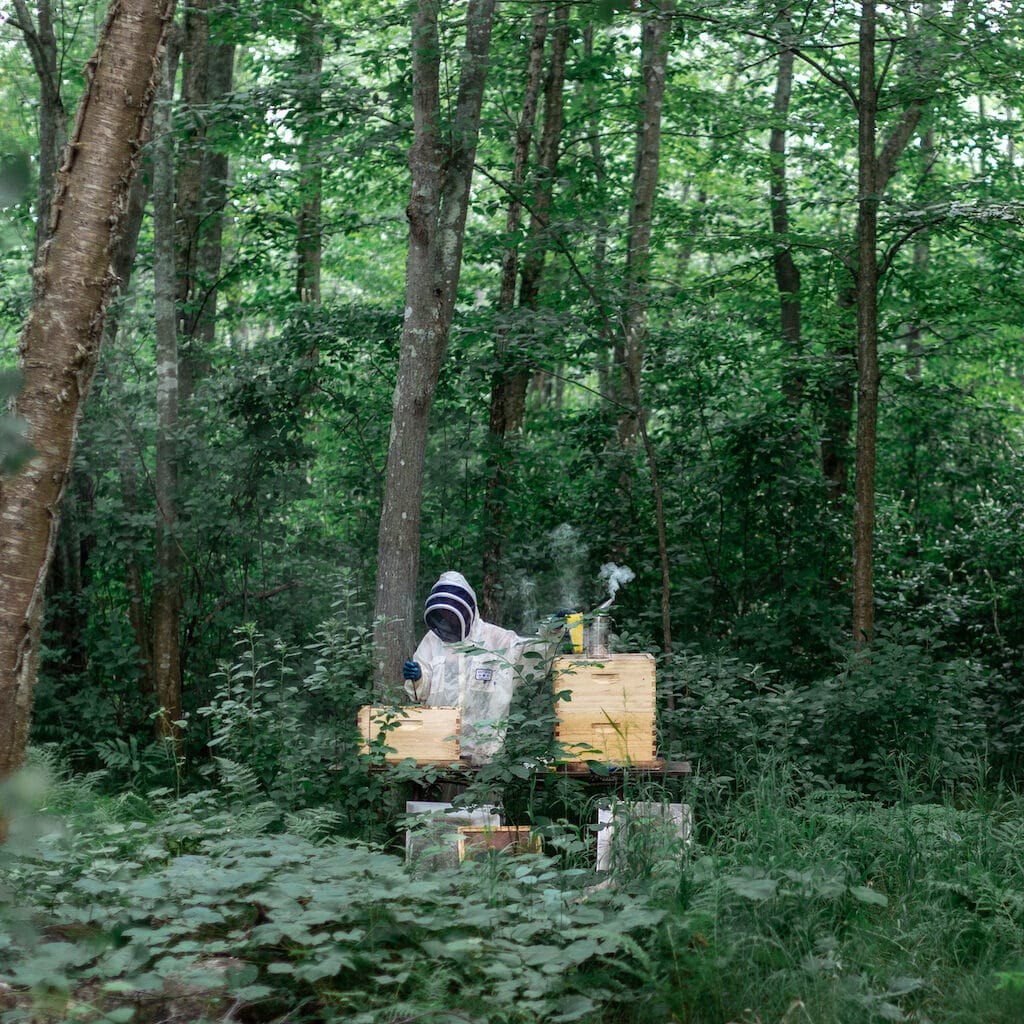In lower Manhattan, high-rise buildings like the Solaire are currently offering their residents the opportunity for sustainable living including convenient access to public transportation, hybrid rental cars, bicycle parking and electric vehicle charging. Gardens of native shrubs, perennials and bamboo cover 75 percent of the roof, helping to lower heating and cooling loads and increase tenant satisfaction.
Since 2016, The Best Bees Company has maintained 6 honey beehives across 3 residential properties operated by the Albanese Organization: The Solaire, The Verdesian, and The Vanguard Chelsea. Sustaining about 1 million pollinators in total, the beehive program adds a charming and eco-friendly element to life in the Albanese communities.
The Honeybee’s Role in the Design of Urban Living
Optimizing green spaces for bees is crucial for their protection and to combat the plight of pollinators. Green roofs play a significant role in bee conservation and help bees thrive due to foraging habitat loss. Bees can benefit from pollinator-friendly buildings and spaces and reverse habitat fragmentation, which occurs when suitable habitats are surrounded by inhospitable areas.
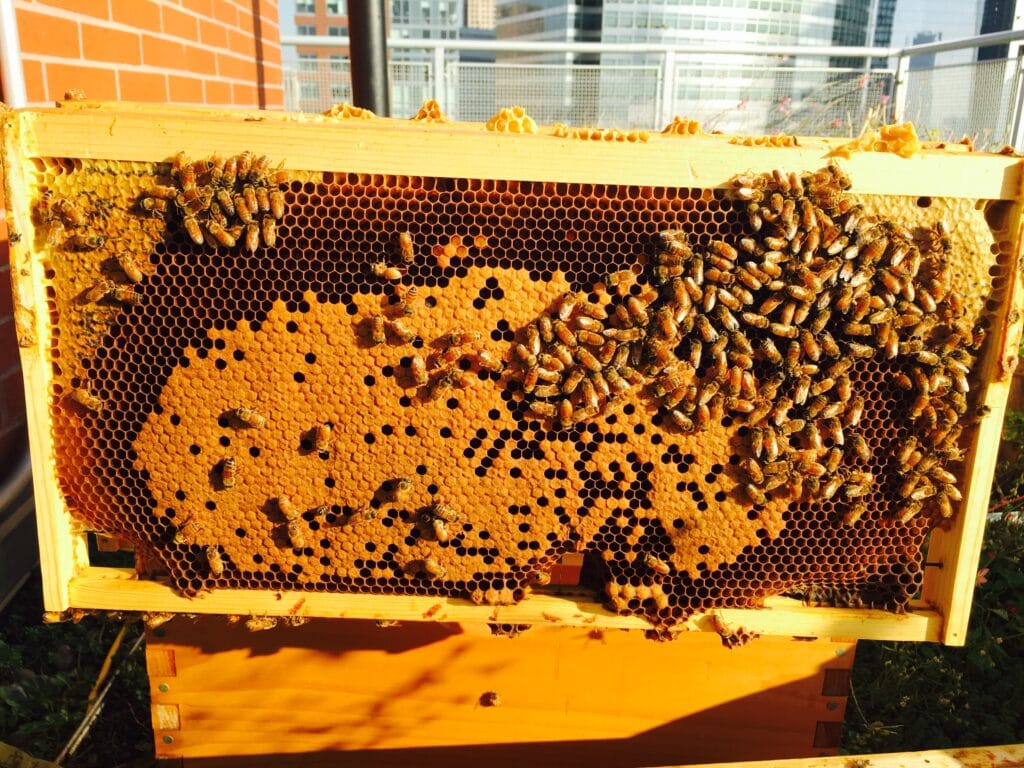
In The Bee: A Natural History, Noah Wilson-Rich notes that “when the number of plant species was doubled in one Californian community garden, the number of native bee species frose from five to forty, thus extending the bee’s foraging season.”
Wilson-Rich also suggests that bees thrive better in the city than compared to the suburbs due to the variety of flowers and plants that feed them. A diverse diet helps aid immune function and supports healthier bees overall.
Common Misconceptions of Urban Beekeeping
Italian honey bees (Apis mellifera ligustica) are known for their docile disposition. These vegan garden pollinators are already commonly found in the natural environment, peacefully flying well overhead.
Even before installation, the Albanese team ensured that the presence of honey beehives created zero added risk to residents and the general public. And, indeed, all safety expectations, regulatory requirements, and insurance obligations have been satisfied without fail over the years.
Benefits of Bees
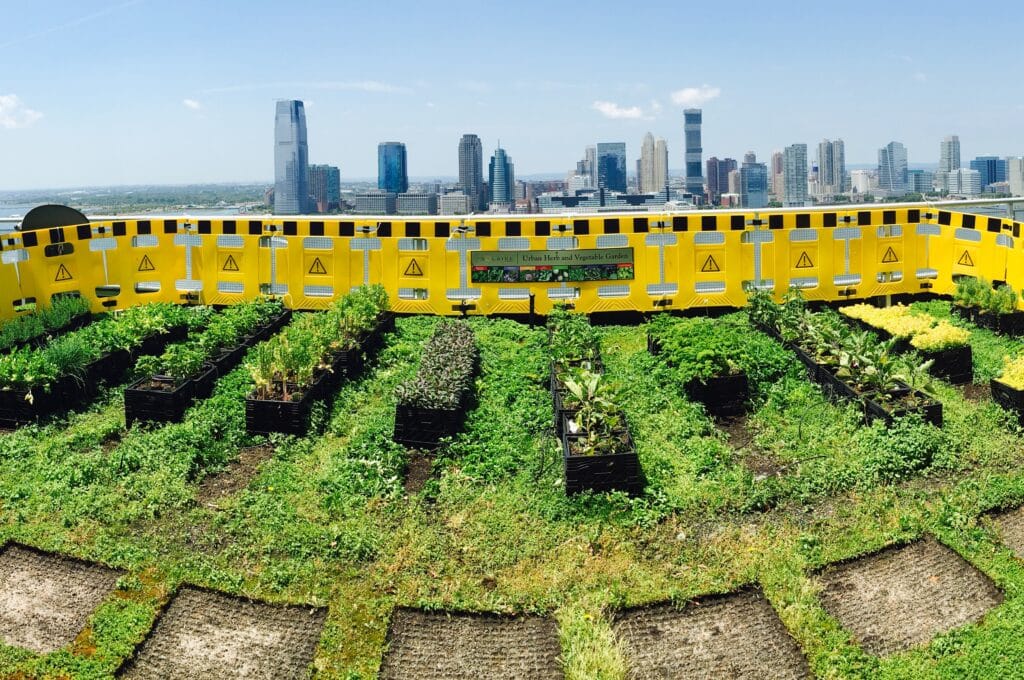
In just 5 years of working with the Albanese Organization by way of creative landscaping and rooftop beehives, we’re proud that our beehive program has achieved the following:
- 300,000 bee pollinators
- 874 happy tenants
- 140 lbs of honey harvested
- 41 Manhattan neighborhoods pollinated
George Kaneris, Senior Vice President of Asset Management for the Albanese Organization emphasizes that the privately-held full-service real estate firm “loves knowing that our properties contribute to the health of the environment.”
Happy Tenants
KBS strongly believes that with the rise of urban apiaries, sustainability is becoming an amenity for tenants. Instead of tenants solely interacting (or watching from a distance) with bees, tenants are able to plant native plants and other flora that will soon be pollinated by the bees local to that property. This can be used as an educational tool, and even beautifies the property, which results in increasing tenant satisfaction.
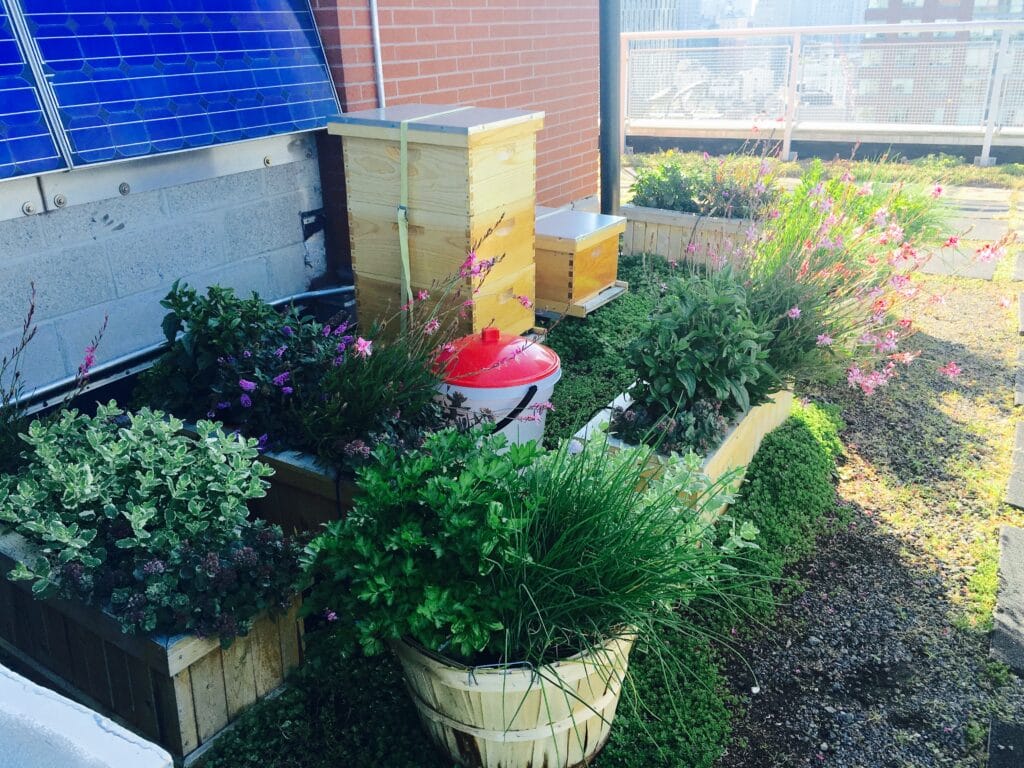
Employee Engagement
While most corporate clients leave the harvesting and jarring of honey to The Best Bees Company, the Albanese property managers are a hands-on crew. Both teams work together seamlessly, with beekeepers pulling frames of honeycomb from beehives, gently brushing all the bees off, and then handing them off to property managers for honey extraction with easy instruction.
Teamwork makes it easy to share harvested honey with all residents. Employees across the company are enthusiastic and recognize the role bees play in keeping work-life balance programs fresh.
In, The Feel Good Power of Bees, we explored how bees help us get back in touch with nature, connect people with their local ecology, give them something fascinating to observe from the safety of their own home. The sound of bees working during the day can be mentally restorative and decrease stress.
Creating a Sustainable Space for Bees
The Albanese Organization has proven that multi-unit residential properties are able to carve out a little space for pollinators to help the local environment and simultaneously operate with safety and ease. The key is transparent communication. This is what makes urban beekeeping unique, the difference between the reality of bees and their public perception.
Here at The Best Bees Company, we make it easy for all of our residential and corporate clients by providing on-site contacts at each property with proactive scheduling notifications, visit summaries, updates for residents about happenings in the beehive, and more. Our beekeeping operation helps support a turnkey sustainability initiative that companies like The Albanese Organizations and others leading the sustainability charge can proudly rejoice from their rooftops.


